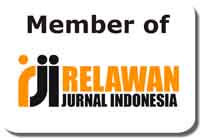The Emotional Geography of A Female EFL Pre-service Teacher in Teaching Practicum: Voice from Initial Teacher Education
Abstract
Keywords
Full Text:
PDFReferences
Arvaja, M., & Sarja, A. (2020). Dialogic Tensions in Pre-Service Subject Teachers’ Identity Negotiations. Scandinavian Journal of Educational Research, 65(2), 318–330. https://doi.org/10.1080/00313831.2019.1705895
Bruner, J. S. (2003). Making stories: Law, literature, life. Harvard University Press.
Bullock, S. M. (2013). Learning to Teach and the False Apprenticeship: Emotion and Identity Development During the Field Experience Placement. Advances in Research on Teaching, pp. 119–140. Emerald Group Publishing Limited. https://doi.org/10.1108/s1479-3687(2013)0000018011
Connelly, F. M., & Clandinin, D. J. (1999). Narrative Inquiry. Issues in Educational Research, pp. 132–140. Elsevier. https://doi.org/10.1016/b978-008043349-3/50013-x
Darling-Hammond, L. (2009). Teacher Education and the American Future. Journal of Teacher Education, 61(1–2), 35–47. https://doi.org/10.1177/0022487109348024
Dotger, B. H., Harris, S., Maher, M., & Hansel, A. (2011). Exploring The Emotional Geographies of Parent–Teacher Candidate Interactions: An Emerging Signature Pedagogy. The Teacher Educator, 46(3), 208–230.
https://doi.org/10.1080/08878730.2011.581882
Fraenkel, J. R., Wallen, N. E., & Hyun, H. H. (2012). How to design and evaluate research in education. McGraw-hill New York.
Haraldstad, Å., & Kristiansen, A. (2019). Building bridges – between the pre-service teachers’ school experiences and the teaching of an educational content. A narrative approach. Journal of Curriculum Studies, 52(5), 608–619. https://doi.org/10.1080/00220272.2019.1658229
Hargreaves, A. (2001). Emotional Geographies of Teaching. Teachers College Record, 103(6), 1056–1080. https://doi.org/10.1111/0161-4681.00142
Hargreaves, A., & Shirley, D. L. (2012). The global fourth way: The quest for educational excellence. Corwin Press.
Haviland-Jones, J. M., & Kahlbaugh, P. (2004). Emotion and identity. In L. F. Barrett, M. Lewis, & J. M. Haviland-Jones (Eds.), Handbook of emotions. NY: The Guilford Press.
Heigham, J., & Croker, R. A. (Eds.). (2009). Qualitative Research in Applied Linguistics. London: Palgrave Macmillan UK. https://doi.org/10.1057/9780230239517
Kaldi, S., & Xafakos, E. (2017). Student teachers’ school teaching practice: The relation amongst perceived self-competence, motivation and sources of support. Teaching and Teacher Education, 67, 246–258. https://doi.org/10.1016/j.tate.2017.05.019
Kvale, S. (1996). InterViews: An Introduction to Qualitative Research Interviewing. Sage: Thousand Oaks. https://doi.org/10.1016/S1098-2140(99)80208-2
Liu, Y. (2016). The emotional geographies of language teaching. Teacher Development, 20(4), 482–497. https://doi.org/10.1080/13664530.2016.1161660
Rejeki, S., Kristina, D., & Drajati, N. A. (2018). Emotional Geographies of an EFL Teacher in Asmat, Papua; Male Perspective. International Journal of Language Teaching and Education, 2(2), 113–121. https://doi.org/10.22437/ijolte.v2i2.5204
Riesky, R. (2013). How English Student Teachers Deal with Teaching Difficulties in Their Teaching Practicum. Indonesian Journal of Applied Linguistics, 2(2), 250. https://doi.org/10.17509/ijal.v2i2.169
Strohminger, N., Lewis, R. L., & Meyer, D. E. (2011). Divergent effects of different positive emotions on moral judgment. Cognition, 119(2), 295–300. https://doi.org/10.1016/j.cognition.2010.12.012
Sulistiyo, U., Mukminin, A., Abdurrahman, K., & Haryanto, E. (2017). Learning to Teach: A Case Study of Student Teachers’ Practicum and Policy Recommendations. The Qualitative Report, 22(3), 712–731.
https://doi.org/10.46743/2160-3715/2017.2671
Zembylas, M. (2003). Emotions and Teacher Identity: A poststructural perspective. Teachers and Teaching, 9(3), 213–238. https://doi.org/10.1080/13540600309378
Zembylas, M. (2005). Discursive practices, genealogies, and emotional rules: A poststructuralist view on emotion and identity in teaching. Teaching and Teacher Education, 21(8), 935–948. https://doi.org/10.1016/j.tate.2005.06.005
Zembylas, M., & Schutz, P. A. (2009). Research on Teachers’ Emotions in Education: Findings, Practical Implications and Future Agenda. In P. A. Schutz & M. Zembylas (Eds.), Advances in Teacher Emotion Research (pp. 367–377). Boston, MA: Springer US. https://doi.org/10.1007/978-1-4419-0564-2_18
Zhu, G. (2017). Chinese student teachers’ perspectives on becoming a teacher in the practicum: emotional and ethical dimensions of identity shaping. Journal of Education for Teaching, 43(4), 491495.
https://doi.org/10.1080/02607476.2017.1341162
DOI: http://dx.doi.org/10.31332/lkw.v7i1.2321
Copyright (c) 2021 Misdi Misdi, Desy Rachmawaty, Nurani Hartini, Kardi Nurhadi, Hendriwanto Hendriwanto

This work is licensed under a Creative Commons Attribution-ShareAlike 4.0 International License.
Langkawi: Journal of The Association for Arabic and English indexed by:



















.png)
.png)

.png)
2.png)








